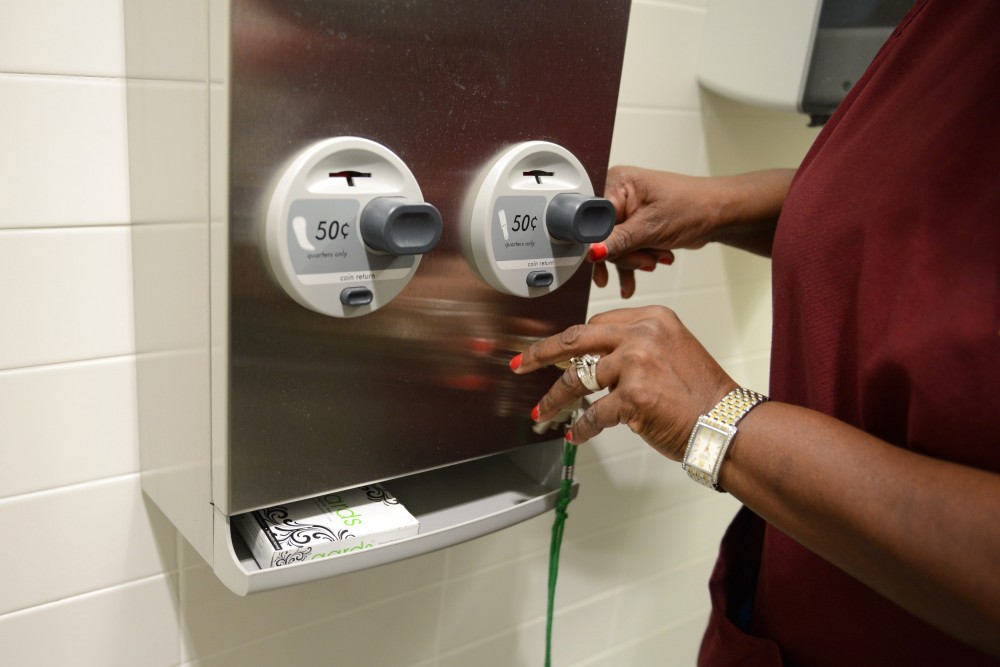In response to accessibility complaints, menstrual care products will now be more accessible in University of Minnesota restrooms.
University Facilities Management will stock the school’s gender-neutral restrooms with pads and tampons, as well as add new informational signs to restrooms about where to find menstrual supplies. The changes come after a push by the Minnesota Student Association (MSA).
MSA members noticed the sparse availability of menstrual products and began discussing ways to deal with the issue, said MSA President Abeer Syedah.
“We had countless encounters with people … [walking] into the MSA office and asking if we had tampons,” she said.
MSA Infrastructure Committee Director Erin Deal said she wanted to work on the project because she’s experienced the lack of supplies herself.
“At the University, I’ve heard a lot of stories about people needing [pads or tampons] and not being able to find [them],” she said. “I’ve personally stopped people in the restroom … and been like, ‘Can you help me out?’”
Physiology senior Melissa Hiniker said she also has been unable to find pads or tampons in University buildings when she needed them.
Once, she had to go home midday just to get supplies, which was inconvenient, she said, adding that she thinks more products and signs in restrooms will help people avoid stressful situations. Non-degree-seeking student Anna Hogan said she always carries tampons and pads with her, but she thinks the expansion is a good idea.
“It’s horrible not to have them,” she said. “It’s every woman’s nightmare.”
In September, MSA representatives met with Facilities Management and learned that the policy called for one female restroom in each building to be stocked with menstrual hygiene products, Deal said.

The policy states the designated restroom should be located on the floor with the most foot traffic, said University Associate Director of Custodial Programs Mike Hofer.
But without signage, students won’t know which restroom to go to, Deal said.
“If you’re in class and you only have a few minutes, you don’t want to go to a different floor,” she said.
Facilities Management addressed the issue by designing signs that will direct people to the restroom, Hofer said. The signs will be installed by the end of the month.
Because of concerns about accessibility for people who identify as transgender, Syedah said, MSA also asked Facilities Management to stock gender-neutral bathrooms with pads and tampons, which the University has agreed to do.
Eventually, MSA would like to see menstrual care supplies in all restrooms, she said.
But Hofer said that would be difficult because the costly process would be labor-intensive. Still, the University is open to discussion.
Many people believe that if colleges can provide free condoms to students, Syedah said, they should also be able to provide pads and tampons.
“We’ve found the finances and the budget for something that is a little more controllable than periods,” she said. “I can’t opt in to my period on a Friday night.”








